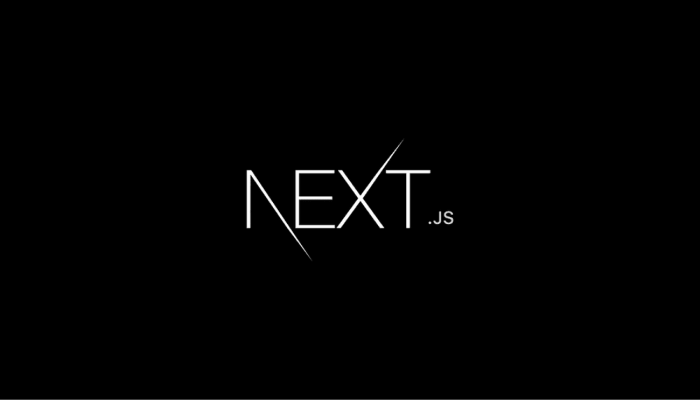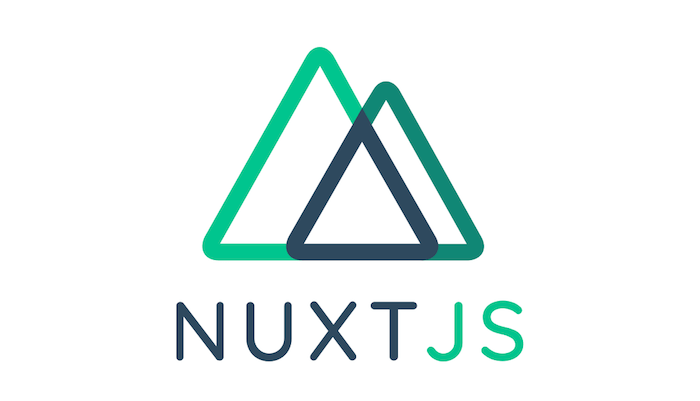Nowadays, every online business desires a high-quality web application. To help you achieve that in the shortest time period there are several excellent JavaScript frameworks available. Nextjs and Nuxtjs are two examples of them.
In this blog, we’ll compare Nextjs with Nuxtjs through introductory-level information. So, if you’re a beginner developer embarking on a new project, this guide will surely help you make the right decision.
What is Nextjs?
Nextjs is an open-source React framework built on top of Node.js. It is for building static websites and web applications that are highly flexible and user-friendly. Generally, it serves functionalities such as server-side-rendering and generating static websites for React.

React’s documentation page lists Nextjs as one of the ‘Recommended Toolchains.’ They recommend Nextjs to developers as a solution while creating a ‘server-side-rendered website with Node.js.’ Nextjs has the functionality to include applications rendered on the server-side, while React apps only render the content in the client-side browser.
Brief History
Guillermo Rauch, the original author of Nextjs, released Next as an open-source project on GitHub. In 2016, Nextjs began its journey as a framework based on six principles. And now, over the last six years, it has evolved significantly and recently released its 12th version, Next.js 12.
Six Principles of Next.js
- Out-of-the-box functionality requiring no setup
- JavaScript everywhere
- All functions are written in JavaScript
- Automatic code-splitting and server-rendering
- configurable data-fetching
- anticipating requests and simplifying deployment
Popular Web Application Built With Nextjs
So, Here is a list of popular web applications built using Nextjs,
- Netflix
- Hulu
- Invision
- Uber
- Starbucks
- Docker
- Twitch
- Magic Leap
Our NextJS-Based eCommerce CMS Full-Software 🎁

Live Preview Details / Download
What is Nuxtjs?
Nuxtjs is also an open-source framework for web applications inspired by Nextjs. It is based on webpack, vue.js, node.js, and Babel.js. Also, the framework is known as a ‘meta-framework’ (for universal application) and aims in developing SEO-friendly web applications with reduced interactivity time.

It can function both as ‘in-browser single page application views’ and also as ‘server-rendered web views’. This can be rehydrated to full SPA functionality. Moreover, it can fully pre-render the content (or parts of it) on the server. And, it served in the manner of static site generators.
Another key advantage of Nuxt is that it simplifies and streamlines the configuration and setup of such applications for the application developer. Therefore, developers can develop UI portions of the application as if it were a more common single file Vuejs application.
Brief History
In comparison to the Next.js framework, Nuxt is comparatively less popular amongst developers. However, both Nextjs and Nuxtjs got launched in the same year (2016) on GitHub. The framework has three original authors, Alexandre Chopin, Sebastien Chopin, and Pooya Parsa. Now, there are over 300 contributors around the globe who are working on the project and it is going to launch its Version 3 in June 2022.
Core Principles of Nuxt.js
- Out-of-the-box functionality requiring no setup
- JavaScript everywhere
- All functions are written in JavaScript
- Automatic code-splitting and server-rendering
- configurable data-fetching
- anticipating requests and simplifying deployment
Popular Web Application Built With Nuxtjs
Here is a list of popular web applications built using Nuxtjs,
- Upwork
- ecosia.org
- Alibaba.ir
- TikTok
- Stackoverflow
- Unilever
- IconScout
- cdnjs
- Icons8
- about.gitlab.com
Our Vue Nuxtjs-based Multipurpose eCommerce Template 🎁

Live Preview Details / Download
Nextjs vs Nuxtjs: Key Features
Next.js and Nuxt.js both have got some really useful features. Some of them are mentioned below.
Nextjs Main Features
Next.js has some eye-catching features that are very useful in getting highly efficient results. Here are some of the features mentioned below.
- Data Fetching – Next.js allows you to render your content in a variety of ways, depending on the use case of your application.
- Built-in CSS Support – With Nextjs you can import CSS files from a JavaScript file. Basically, this is possible because Next.js extends the concept of
importbeyond JavaScript. - SEO Friendly – Nextjs helps you to easily create titles and keywords for each page. You just have to use the featured head component to place them on every page.
- ESLint Compatible – Next.js has included an integrated ESLint experience since version 11.0.0.
- Image Optimization – Nextjs provides higher-quality, resized images in modern formats such as WebP. (Open to new formats). The images are also set up to adapt to smaller viewports.
- Configurability – The Nextjs routing system is as easy as creating folders. It is highly configurable.
- API support – Next.js connects APIs easily and helps you create your own API routes.
- Typescript – Next.js supports the Typescript programming language.
Nuxtjs Main Features
Nuxtjs also has various features that are highly effective in terms of web application development and static site generation. Here are some of them.
- Zero Configuration – Nuxt allows you to start making your project within seconds.
- File System Routing – It allows automatic routing and code-splitting for every page.
- Rendering Modes – With Nuxt it is simple to switch between static-site generation and on-demand server rendering.
- Data Fetching – You can fetch your content from any source in your Vue components, SSR ready.
- Strong Conventions – Nuxt has a strong directory structure and conventions which leads to highly efficient teamwork.
- SEO Friendly – Nuxt has amazing meta tag management and faster time-to-content for great indexing.
- Components Auto-import – It will import your components with smart code-splitting.
- Modules Ecosystem – There are 160+ Nuxt modules with which you can extend your app. Also, you can create your own.
Nextjs vs Nuxtjs: Common Features
Nuxtjs launched from the inspiration of Nextjs. As a result, the following similarities can be found:
- Data Fetching
- SEO-Friendly
- Zero Configuration
- Server-Side Rendering
- Static Site Generation
- Requires Node.js Server
- Javascript
Drawbacks: Nextjs vs Nuxtjs
Just like any other technology, both Nextjs and Nuxtjs have flaws too. Below are some of the drawbacks of each.
Drawbacks of Nextjs
- Although Next is a very powerful framework, however, it can overkill when developing a simple application.
- It is essential that all data be loaded from both the client and the server.
- Migrating a server-side application to Next is not easy, and it may be quite difficult depending on the project.
Drawbacks of Nuxtjs
- Nuxtjs has a smaller community, which means fewer resources and less extensive documentation.
- If there is heavy traffic, it may put a strain on your server.
- Nuxtjs lacks some really useful plug-ins or components in it.
Tools Integration: Nextjs vs Nuxtjs
What Tools Integrate with Nextjs?
Here is the list of tools that you can integrate with Nextjs.
- React
- Material UI
- Strapi
- Sanity
- Builder
- DatoCMS
- GraphCMS
- Magnolia CMS
- Tipe
- Divjoy
- Glamorous
- Webiny headless CMS
- Clerk
- Pika Pack
- Plasmic
- Thin Backend
- Moovweb XDN
- Front Matter
- Devsync
- Panelbear
- Tolgee
What Tools Integrate with Nuxtjs?
Here is the list of tools that you can integrate with Nuxtjs.
- Strapi
- Builder
- DatoCMS
- Localazy
- Kentico Cloud
- WindiCSS
- Moovweb XDN
- Devsync
- Panelbear
- Master Styles
- BagelDB
- Gravity Framework
- Deploy Now
- AutoAnimate
- Agility CMS
Nextjs vs Nuxtjs: Basic Information
| Next.js | Nuxt.js | |
| Original Author(s) | Guillermo Rauch | Alexandre Chopin, Sebastien Chopin, Pooya Parsa |
| Server | Node.js | Node.js |
| Initial Release | October 25, 2016 | October 26, 2016 |
| Stable Release | 12.1.0 / 17 February 2022 | 2.15.7 / 14 June 2021 |
| License | MIT License | MIT License |
| Repository | GitHub | GitHub |
| Written In | JavaScript, TypeScript, and Rust | JavaScript |
| Platform | Web Platform | Cross-Platform |
| Size | 79.46 KB | 57 KB |
| Type | Web Application Framework | Web Application Framework |
| Testing Tool | Cypress, Playwright, Jest, Vitest | Nuxt Test Utilities |
| GitHub Stars | 87.2k | 40.6k |
| GitHub Forks | 18.5k | 3.2k |
Source: Wikipedia & GitHub
Wrapping Up
Next, Nuxt and any other JavaScript-based approach are all pretty spectacular in terms of their respective use-cases. There is no clear winner in this type of situation. You’ll need to determine your use case and then match it to the features of these frameworks.
Which do you plan to use for your next project — Nextjs vs Nuxtjs — and why? Evaluate now!
Thank you for your time.
About Us
At UI-Lib, we develop high-quality free & premium templates, design systems, full solutions, and more. Thus, we’re all about delivering services that make coders’ lives easier.



Comments are closed, but trackbacks and pingbacks are open.